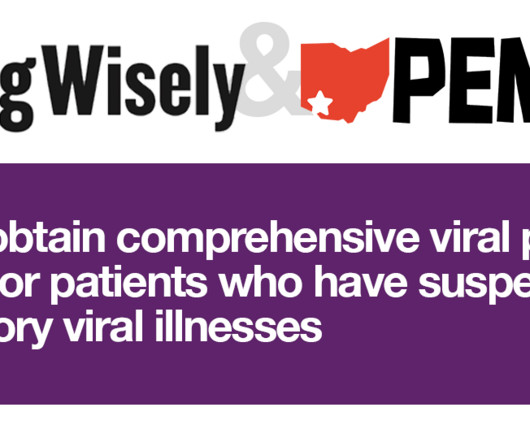Position Statement on Measurement Based Care
Integrated Care News by CFHA
MAY 19, 2025
MBC is presented not simply as data collection, but as a dynamic, evidence-based clinical process that enhances outcomes, promotes equity, and strengthens team-based care. MBC supports optimal clinical practice, demonstrates the value of integrated care teams, and improves outcomes. What is MBC? 3, 5, 6) b. 1, 8, 9) d.












Let's personalize your content